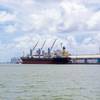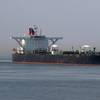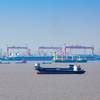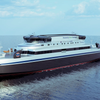ICS Disappointment at IMO Fuel Study
Switch to Low Sulphur Fuel has Implications for Shore Based Industry Too says ICS.
The International Chamber of Shipping (ICS), whose member national shipowners’ associations represent more than 80% of the world merchant fleet, has expressed disappointment and concern at a decision by the International Maritime Organization (IMO) to reject its call to accelerate a critical study into the global availability of low sulphur fuel for ships.
A small majority of IMO Members States, led by the United States, rejected an ICS submission to the IMO Marine Environment Protection Committee (MEPC), which was debated this week in London. Nevertheless, the IMO vote was very close indeed. As well as having the support of major shipping nations such as China and several open registers, ICS was supported by some EU Member States.
ICS was pressing for IMO to start work without further delay on a comprehensive fuel availability study that could consider the impact of all the changes required by the new MARPOL Annex VI regime, to reduce atmospheric pollution, before it is too late for the oil refining industry to respond and invest.
Shipowners are worried about whether sufficient fuel will be available to allow ships to comply with the strict IMO regulations on sulphur emissions and whether, as a result of insufficient supply, the costs for those ships that are able to obtain the required fuels might be prohibitively expensive. In some trades this could lead to significant modal shift to shore based transport, with negative consequences for congestion and the environment. These are issues that were not anticipated when the regulations were agreed.
Speaking after the vote at the IMO MEPC, ICS Secretary General, Peter Hinchliffe remarked: “Some governments still appear to have their heads in the sand with respect to fuel availability. What will be the impact of ships switching to distillate on the availability of diesel for road transport or heating oil for homes? We still think it’s essential that a global fuel study is carried out sufficiently in advance of 2020 to give the refiners adequate time to invest and react. The major refinery upgrading required could take a minimum of four or five years, perhaps longer, and we believe that completing the study in 2018 would simply be too late.”
ICS argues that the need to move forward the IMO study is more important than ever, especially as the EU has already decided that it will definitely implement the 0.5% sulphur requirements in 2020, even if the IMO study results suggest, as permitted by MARPOL, that full implementation should be postponed until 2025.“ICS has not given up, and we will bring the issue back to IMO next year” said Peter Hinchliffe. “The issue is just too important. The enormity of the switch to distillate and its economic impact on shipping, and indeed the world economy as whole, should not be underestimated or swept under the carpet.”
ICS emphasises that when the global requirement to switch to distillate was adopted in 2008, ICS supported the agreed IMO timetable as an acceptable compromise.However, if the switch to low sulphur fuel is to be successful, ICS believes that those governments that advocated such ambitious goals need to do everything possible to assure themselves and the industry that the refineries are able to deliver. ICS still believes this means undertaking the required studies of fuel availability as soon as possible.
There is already a formal mechanism in MARPOL Annex VI for IMO to complete a review, by 2018, of progress made towards meeting the demand for 0.5% sulphur fuel that must be used globally outside of Emission Control Areas (ECAs) by 2020 or 2025. However, ICS had suggested that a preliminary IMO study of the availability of compliant fuel, taking into account the introduction of the 0.1% sulphur in fuel requirements to be used in the Baltic Sea, North Sea and the North American ECAs in 2015, would provide a suitable test case. Such a study would provide a projection of possible scenarios resulting from the introduction of the 2015 0.1% ECA standard, against the background of the world market. This could then be considered in comparison with the real situation encountered in 2015.
Fuel is by far the largest operational cost for shipowners and has already increased in price by about 400% since 2000. However, the current 50% price differential between low sulphur distillate and the residual fuel oil that is currently in use is predicted to increase yet further if the new demand that will be created by the MARPOL requirements is not matched by increased supply.











